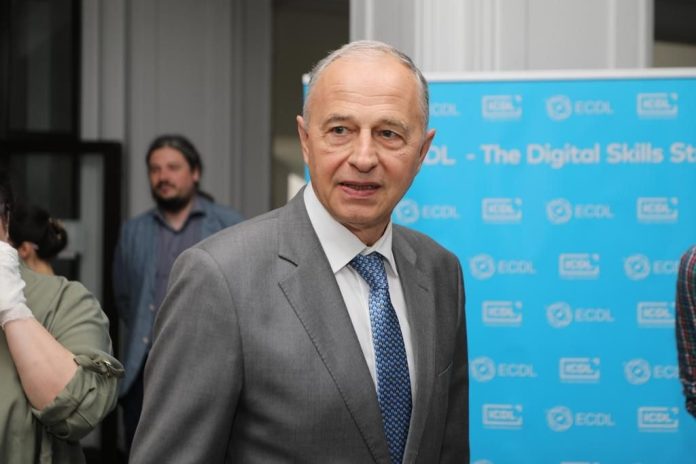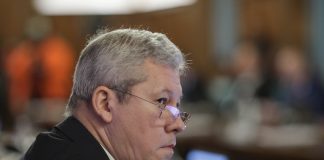North Atlantic Alliance Deputy Secretary General Mircea Geoana pleaded on Friday for the abandonment of the „scorched land policy”, particularly at the change of governments and leaders, cautioning that good ideas and innovation are not the prerogative of a „narrow” and „ephemeral” group of leaders, but are built in a „relay of knowledge”, according to Agerpres.
„We are world champions in strategy discontinuity, by the number of strategies per square centimeter and regrettably, we are among the laggards in implementing them. (…) Good ideas, as well as innovation, are not the prerogative of a narrow and ephemeral group of leaders. They are built over time, in a relay of knowledge, collective intelligence and shared common destiny. Individual accomplishment is to no avail if we fail collectively. Working together is the beginning of a consistent response to the problem of innovation in health, economy, to how we administer the country, and we put innovation at the center of the development of human society,” Geoana said in a video message sent to the participants in the debate „Growing Romania’s health innovation ecosystem – challenges and solutions”, organized by the Senate Defense Committee.
Geoana, who also chairs the NATO Innovation Board, argues that the „first ingredient” of innovation is to generate and cultivate „a permanent innovation mindset” for all actors in society.
„To innovate means to educate and promote a culture of experimentation, in which failure is not an incentive, but a necessary step in achieving success. A second ingredient is the creation of an innovation ecosystem in which the triple helix of the relationship among the public, the private and the academic sector is essential. A strategic partnership among the public, private and academic sectors is indispensable. (…) The third ingredient is the human resource. I am happy to see technical and medical universities together because bioengineering and biotechnology are two sides of the same coin,” Geoana explained.
„The fourth ingredient is the material and financial resource, especially for countries with fragile economies. (…) We must create the conditions for the private sector to invest more in research, development and innovation. The fifth ingredient is creating the capacity to anticipate at the level of public, academic and civic institutions. (…) We are rapidly moving towards a biodigital era. The convergence between biological systems and digital technology represents the most important revolution in human history and will dramatically influence the economy, society, first of all health care, the food sector, environmental protection, industry, as well as security. (…) If we were to offer some advice to medicine, I would say digitize, innovate and, above all, don’t give up, becuase boldness is the attribute of leaders, and fear is the death of creativity,” said NATO’s Deputy Secretary General.
Agerpres




